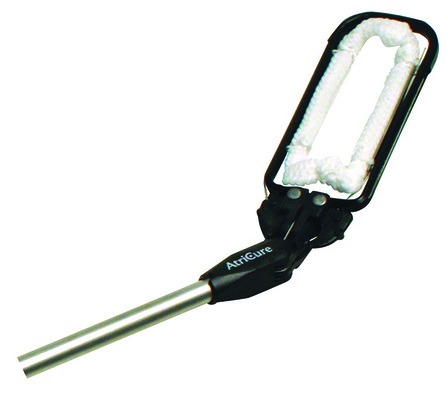
AtriCure has announced that the first two patients have been enrolled in its DEEP (Dual epicardial and endocardial procedure) clinical study at PinnacleHealth CardioVascular Institute in Harrisburg, USA. The study will investigate a minimally invasive approach performed by cardiac surgeons and electrophysiologists to treat patients with persistent or long-standing persistent atrial fibrillation who have failed antiarrhythmic drug therapy.
“This important study utilises the skills of both the cardiac surgeon and electrophysiologist to establish a new standard of care for patients with persistent forms of atrial fibrillation,” says Mike Carrel, president and chief executive officer of AtriCure.
In the DEEP study, the cardiac surgeon and electrophysiologist work as a team to perform a minimally invasive epicardial surgical ablation and endocardial catheter-based ablation. The primary effectiveness endpoint of the study is freedom from atrial fibrillation and absence of class I or III antiarrhythmic drug therapy. AtriCure received approval in November 2014 from the US Food and Drug Administration to enrol 220 patients at 25 sites in the DEEP study.
Atrial fibrillation patients who have failed antiarrhythmic drug therapy and may have received up to two failed catheter ablations are candidates for the DEEP study, which is performed in two phases. In the first phase, the surgeon will make small incisions to perform endoscopic epicardial ablation using the AtriCure Bipolar System, and exclude the left atrial appendage with the AtriClip left atrial appendage exclusion system.
The first procedure in the study was performed by Mubashir Mumtaz, chief of cardiovascular and thoracic surgery at PinnacleHealth. “We really believe that this trial will provide much needed insight into this disease. We are excited and feel honored to be able to enrol and treat the first two patients to kick off the trial,” says Mumtaz.
The second phase of the procedure, catheter ablation and endocardial mapping, will be performed by Michael G Link, an electrophysiologist at PinnacleHealth, roughly 90 to 120 days after the surgical procedure.
“I am excited about DEEP because the more persistent forms of atrial fibrillation have been historically difficult to treat, with disappointing results,” says Link. “I am honoured to be at the forefront of this trial which will hopefully alter the standard of care for these patients.”
The principal investigators for DEEP are Kenneth Ellenbogen, chairman of the Division of Cardiology at Virginia Commonwealth University (VCU) Pauley Heart Center; Paul Wang, director, Stanford Arrhythmia Service, professor of medicine and bioengineering, by courtesy, Stanford University School of Medicine; Vigneshwar Kasirajan, chairman, Department of Surgery and Division of Cardiothoracic Surgery and professor, Department of Surgery at VCU Pauley Heart Center; and Ali Khoynezhad, professor of cardiovascular surgery at Cedars-Sinai Heart Institute.












